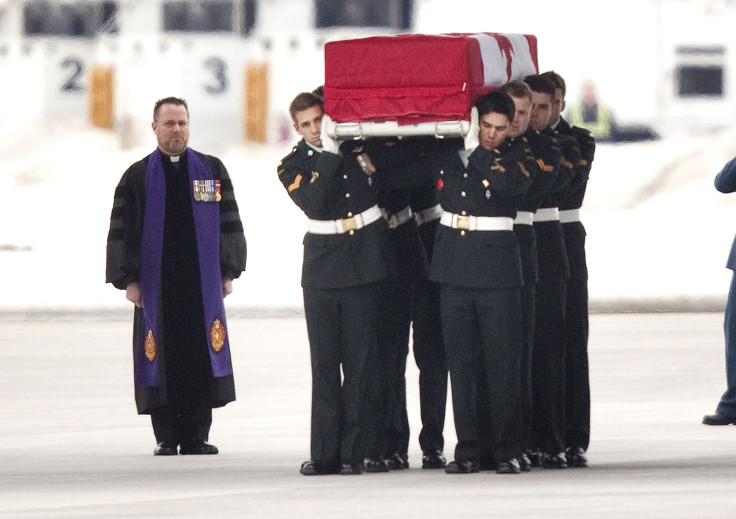Death Of Special Forces Soldier Doiron A Factor Whether Canada’s Mission In Iraq Should Be Extended

The death of a special forces soldier over the weekend in a mistaken identity incident may prove a major sticky point of whether Canada must extend its mission in Iraq, even as the Harper government had strongly hinted of doing such.
On Monday, the House of Commons was one fireplace as political opposition groups blasted the Conservatives for the fate that killed the life of Sgt Andrew Joseph Doiron, one of the 69 special forces troops sent to train Kurdish peshmerga fighters. He was gunned down while approaching an observation post 200 metres from the front lines.
That the particular group was on the front lines made the NDPs focus again their sentiments against the Harper government. NDP deputy leader Megan Leslie blasted the government for lying all along since the start of the mission. “We were told that the mission would involve airstrikes and training. But now we discover that our service people are on the front line. They are targeted by the enemy and there are victims among our troops.”
Three others, apart from Doiron, were injured during the incident, which the Kurdish peshmerga fighters said was a case of mistaken identity. They said the three had introduced themselves in the wrong way that’s why the locals fired at them, thinking they were ISIS Daesh fighters.
Defence Minister Jason Kenney told the House of Commons three investigations have been opened to look into the matter, a military police case and a technical investigation. There is another internal review being conducted by the special forces, which is still part of the technical investigation. Kenney reiterated to the floor Canada’s 69 special forces troops are not engaged in combat and that they are only there to “advise and assist.”
Foreign Affairs Minister Rob Nicholson had earlier said Canada’s mission in Iraq, scheduled to end April 7, will be extended. The unfortunate friendly fire incident will not influence that, Kenney said.
Meantime, much as Canada would want to prosecute the people accountable for the death of Doiron, pursuing it will be a very different and difficult scenario. Roland Paris, director of the Centre for International Policy Studies at the University of Ottawa, said the Kurds must be brought to court and justice served, so to speak. But exactly how to do it is something that remained uncertain. "Should they be? Yes, of course, but I don't know enough about how the Kurds handle these situations to be able to guess at how they will do."
The Kurds, as will all other global military units, have their rules of engagement. It is highly likely these will be scrutinised and it is highly likely they will defend their own rules to the core. “How are we going to work through the mechanics of ascertaining whether their rules of engagement, which are nothing like ours, were correct?” Steve Day, a former special forces commander and security expert, told the Canadian Press. It’s going to be a whole lot of complicated processes, which in the end could yield nothing still to appease Doiron’s death. "I don't see scenario where there's a prosecution like we would see in Canada."
To report problems or to leave feedback about this article, e-mail: e.misa@ibtimes.com.au.
Related:
Canada MPs Hesitant about Iraq Mission
Canada Government Refuses to Clarify on Iraq Mission, Speaker’s Integrity ‘Questioned’





















